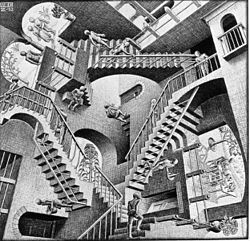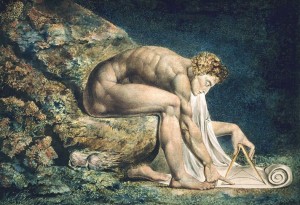 6. Harris’s incoherent jump: from valuing scientific objective truth, to valuing “The well-being of conscious beings”.
6. Harris’s incoherent jump: from valuing scientific objective truth, to valuing “The well-being of conscious beings”.
Sam Harris makes an incoherent jump in values: from valuing scientific objective truth, to valuing “the well-being of conscious beings”.
Experience has taught us humans that a unified/coherent picture of the world, if such a picture is correct, is more useful than an incoherent picture. Incoherent disjointed scientific, religious, metaphysical, epistemological, logical, or value systems don’t work or function as well. By definition they are prone to chaos and paradox. That is why historians claim that Western philosophy’s first true philosopher was the ancient Greek, Thales, because he purportedly argued that everything is made of one unifying element: water. Thales was almost certainly wrong, but that’s not the point. 
Finding a coherent/unifying model to explain astronomical observations is why Copernicus was driven to the hypothesis that the earth revolves around the sun. Coherence is why Newton’s uni-versal theory of gravity was considered so momentous. And it is why modern physicists are so obsessed with finding a theory that can unify general relativity and quantum physics. Coherent or unified models or theories are a hallmark of good science. It is why the most successful creators of grand unifying theories in science, such as Newton, Darwin, and Einstein, are considered to be the greatest scientists. So, a new theory or empirical observation that is not in coherence, with the unifying theories of physics that we have, would be highly suspect.
Likewise, the human need for a coherent social contract is also why the first of the 10 Commandments is to believe in one god. It probably wasn’t, as atheists often claim, because the Judaeo-christian God was simply a sociopath or megalomaniac. And coherence and unity is why the emperor Constantine saw fit to decree that Christianity be the one religion of the Roman empire. To the degree that these efforts at unity reflect the truth, we can easily see their merit.
Harris is a passionate advocate for atheism. And his central argument for atheism can probably be summed up as: religion, or more precisely supernatural monotheism, is out of accord (doesn’t cohere) with what science tells us is likely factually the case. Harris values science because it’s the best tool we have developed to learn what is the case. He believes that we ought to value what is. But he makes a categorically incoherent jump from valuing what is, in terms of the coherent body of knowledge that the hard sciences have given us, of which the universal laws of physics are underlying framework, to valuing the well-being of conscious creatures, which Harris arrives at separately. Harris doesn’t arrive at well-being via valuing the body of knowledge that is science, rather he attempts to bootstrap valuing well-being as his meta-ethical foundation, from his argument that we axiomatically must at least not want his hypothetical reality of ultimate suffering.
 Scientific pantheists on the other hand, value science simply because science seems to shows us best what the truth is about reality (what reality is), and to the pantheist reality as a whole is the good. As a coherent whole, or, in general, reality/god is the unified value. The resulting coherent ethical system, of scientific pantheism, is thus less likely to have it’s “utilitarian” Peter Singers. Who, though well meaning and even heroic with their “effective” altruism, still spend too large a proportion of their precious energy alleviating suffering, while too little energy thus goes to avoiding or alleviating mounting existential threats.
Scientific pantheists on the other hand, value science simply because science seems to shows us best what the truth is about reality (what reality is), and to the pantheist reality as a whole is the good. As a coherent whole, or, in general, reality/god is the unified value. The resulting coherent ethical system, of scientific pantheism, is thus less likely to have it’s “utilitarian” Peter Singers. Who, though well meaning and even heroic with their “effective” altruism, still spend too large a proportion of their precious energy alleviating suffering, while too little energy thus goes to avoiding or alleviating mounting existential threats. 